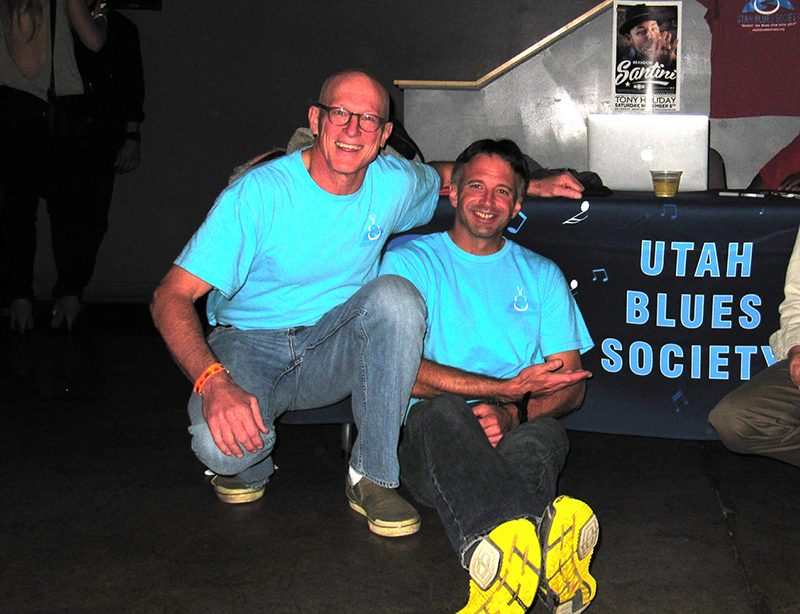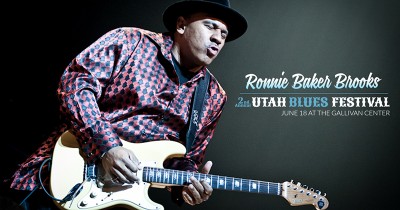
The Soul of Salt Lake: The Second Annual Utah Blues Festival
Music Interviews
The festival itself is quite user-friendly. “Tripp and I decided that we want to create a festival that we would want to go to,” says Kelm. Attendees can receive a re-entry stamp so they can leave and come back when they please. The festival is gated, so you can buy a beer and bring it back to your seat. Best of all, the venue allows audience members to have a better chance to see the musicians play up close. “You want to see their emotions,” says Hopkins. “It’s coming from the heart. It’s raw.” The festival will also have the top five food trucks available. However, festivals this large require a lot of work—and the two cannot run it alone. The UBF is still in need of volunteers, which you can apply for online. “[The volunteers] are like a little family,” says Hopkins. You get together once a year and hold the festival—Blues Family Reunion.”
 The Utah Blues Festival is not only a fun and family-friendly event; it’s also the largest fundraiser in Utah for the Blues Foundation. Hopkins is a board member of the Blues Foundation in Memphis—one of nearly 200 worldwide affiliates. Part of the Foundation’s mission is to help fund blues musicians and artists, but a larger part is supporting blues in the schools. Competitions (such as the International Blues Challenge) and festivals (like UBF) are fundraisers for the foundation to help bring the blues to schools. Currently, the co-founders have a few schools they regularly visit to bring in blues musicians and give away harmonicas. “My mission,” says Hopkins, “is to make sure future generations appreciate and understand not just the music, but the culture and the story behind where the blues came from. It’s a pretty heavy story when you think about it.”
The Utah Blues Festival is not only a fun and family-friendly event; it’s also the largest fundraiser in Utah for the Blues Foundation. Hopkins is a board member of the Blues Foundation in Memphis—one of nearly 200 worldwide affiliates. Part of the Foundation’s mission is to help fund blues musicians and artists, but a larger part is supporting blues in the schools. Competitions (such as the International Blues Challenge) and festivals (like UBF) are fundraisers for the foundation to help bring the blues to schools. Currently, the co-founders have a few schools they regularly visit to bring in blues musicians and give away harmonicas. “My mission,” says Hopkins, “is to make sure future generations appreciate and understand not just the music, but the culture and the story behind where the blues came from. It’s a pretty heavy story when you think about it.”
One reason these co-founders have strove to great measures to support the blues as an art form is because the blues started dying out as a genre years ago. “The blues scene was doing really well,” says Kelm. In the early 2000s, blues clubs suddenly began shutting down. “All the clubs crashed nationwide,” says Hopkins. “The blues artists were just getting too old—the clubs had no one to book.” However, the have hope for the future of the blues. “Things go in cycles,” says Kelm. “Part of our mission to show that everybody’s a blues lover; they just might not know it yet.” Though the festival is only one day, the co-founders have big dreams for its future. “We want to make this into a two-day festival with all touring musicians from around the country and the local City Weekly winners,” says Hopkins. “We’re really trying to support the guys and gals who live on the road.”
Kelm and Hopkins are true blues lovers who understand the magic of this genre. “I think, in this day and age, more and more people want human connection,” says Kelm. “And in our personal view, there’s no better way of doing that than the blues. It’s real. It’s the truth. It’s the human story, human emotion.” For Hopkins, it isn’t just about the music. “It’s the culture that goes along with it,” he says. “It’s a uniquely American art form that we need to own.” Join us Saturday for one of the best festivals of the year!